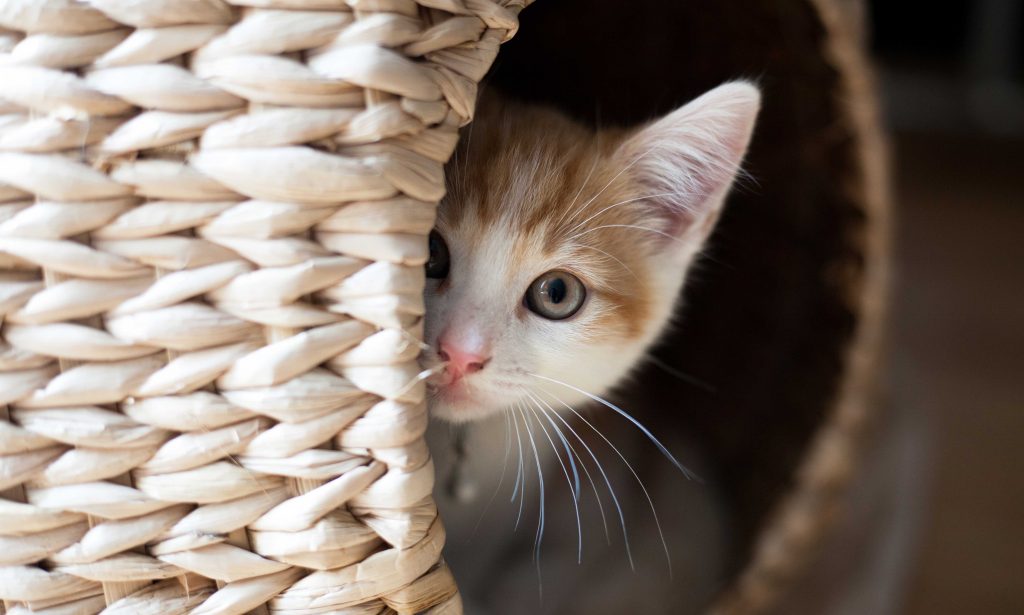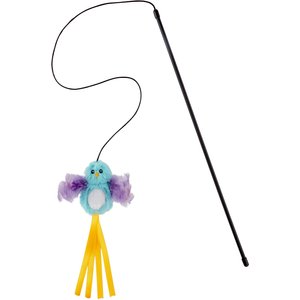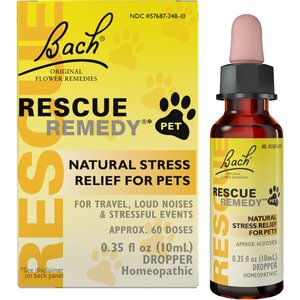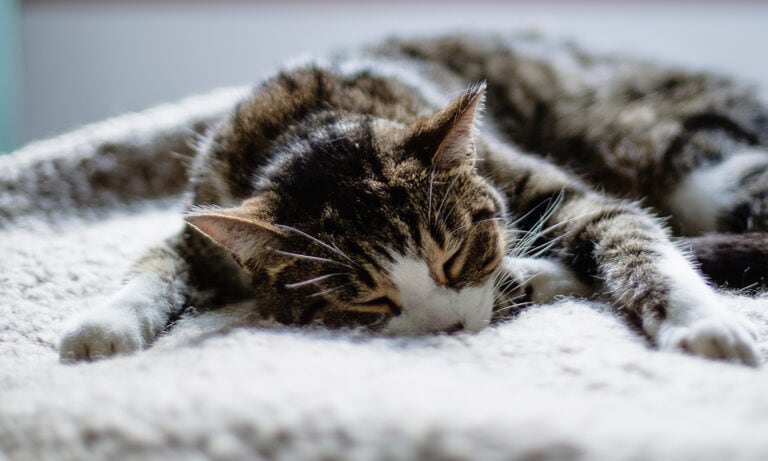We enlisted the help of a certified animal behaviorist and a cat behavior expert to break down all things cat stress, including the signs and symptoms of stress, how to alleviate the stressors in your cat’s environment and more.
In This Guide:
Signs of Stress in Your Cat and How You Can Help
1Hiding
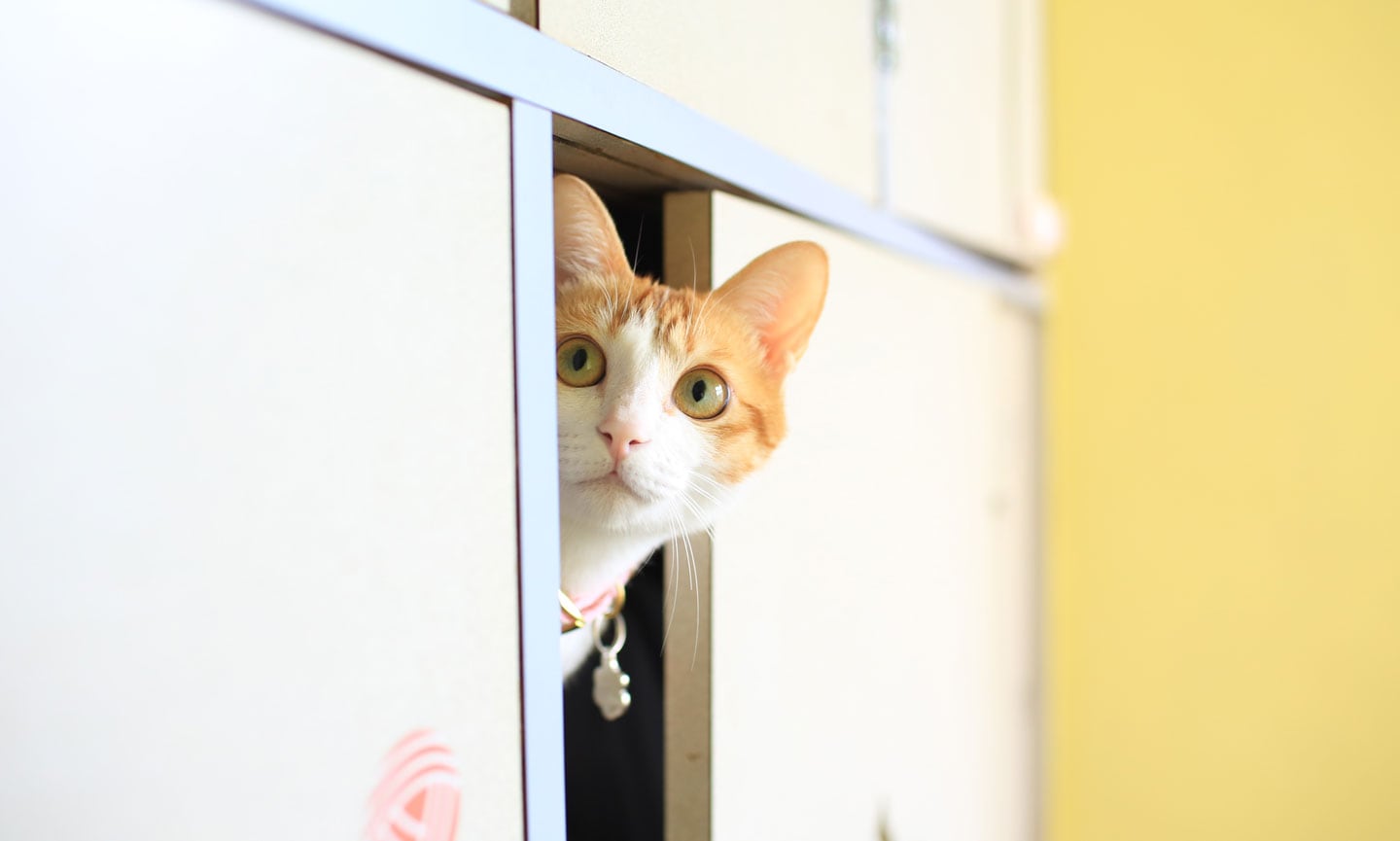
“Hiding, or avoiding human contact, is a big sign of problems and stress,” says certified cat behavior expert Rita Reimers, CEO and co-founder of Cat Behavior Alliance in Charlotte, North Carolina.
Many cats find a hiding place that feels safe when they become stressed, feel threatened or get sick, adds Yody Blass, M.A., a certified animal behaviorist by the National Association of Animal Behaviorists and owner and director of Companion Animal Behavior in Leesburg, Virginia.
What You Can Do To Help:
Once physical causes have been ruled out, Blass suggests creating a cat-friendly safe room with a hiding place where feline parents can check on their cat frequently until the source of stress is resolved or the illness has passed.
“Start working on play sessions when you’re in the safe room, enticing your cat to come out of his shell and engage with you,” she says. “Toss a treat or give a pinch of catnip to help create a positive association with your presence.”
2Going Outside the Litter Box
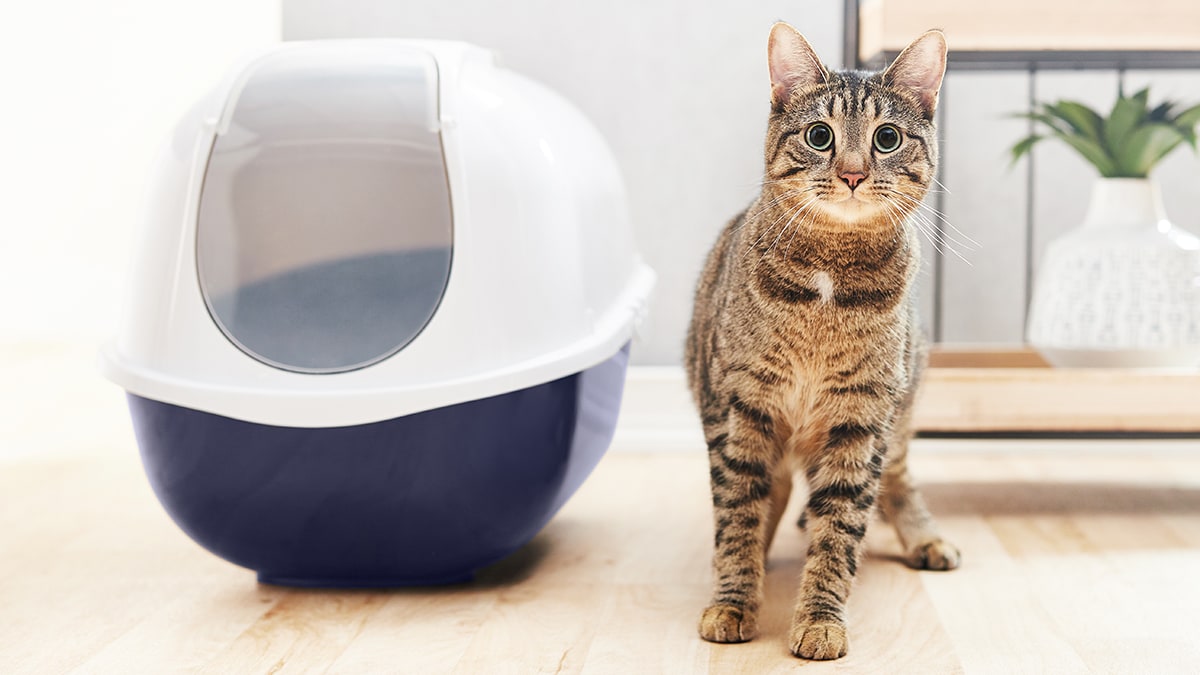
If your cat begins doing their business everywhere but their litter box (also known as inappropriate elimination), they may be telling you it’s time to clean it.
Alternatively, Blass explains that a sick cat may actually go to the bathroom in front of you or in a prominent place, such as in your bed or on the couch.
Cat parents often miss this sign of stress, instead assuming their feline friend is simply misbehaving. You’ll need to really analyze your cat’s behavior to decipher why they’ve stopped using their litter tray.
What You Can Do To Help:
Always keep your cat’s litter box clean, following the rule of one box per cat—plus one extra box. Having the correct-size box (a bigger cat needs more room) can help erase your cat’s bathroom distress.
Assuming it’s clean, your cat may need an appointment with the vet. If potential physical causes are ruled out but your cat’s behavior persists, you may want to consult with a cat behaviorist.
3Appetite Changes
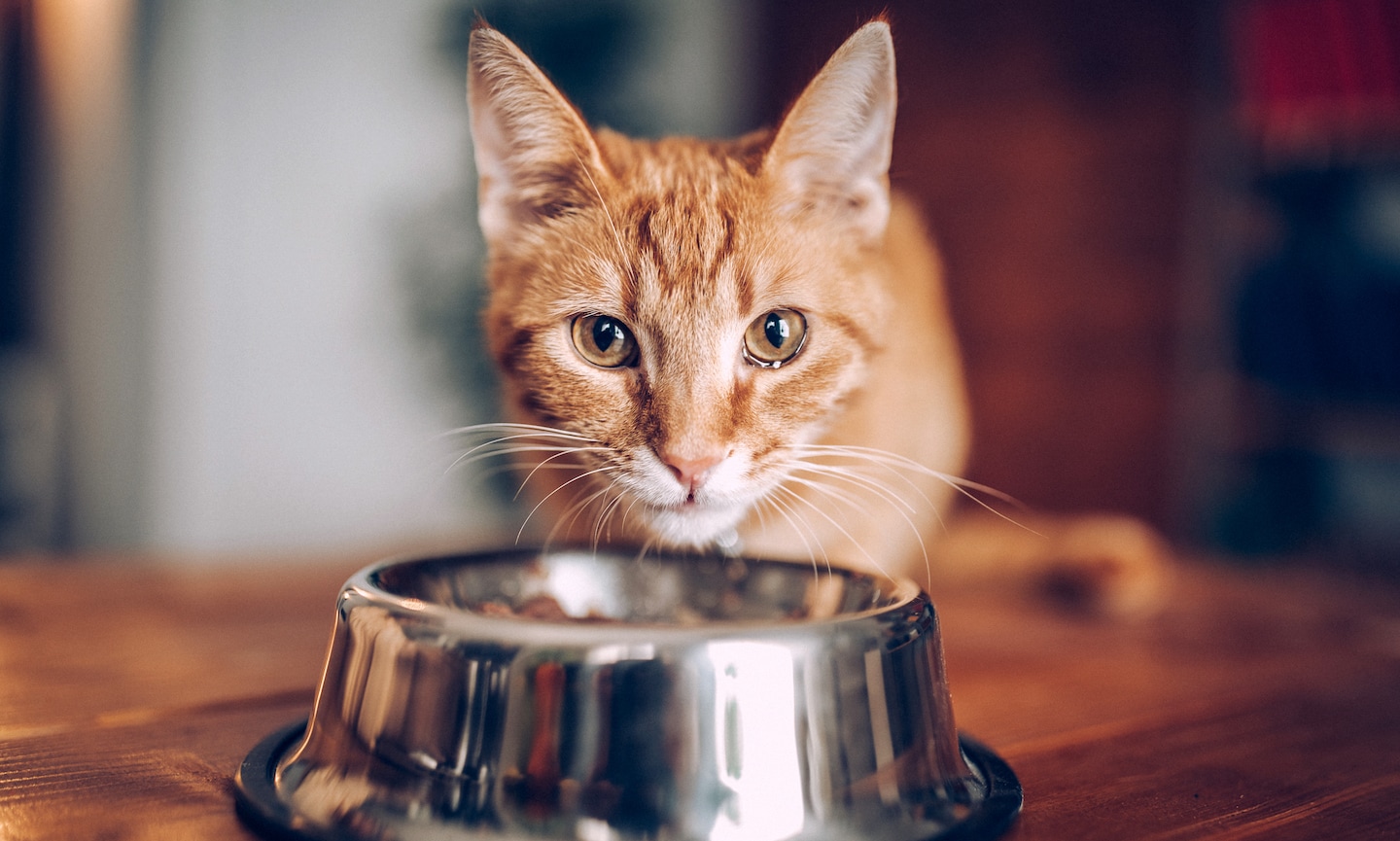
When a cat is overly stressed, they may stop eating normally, Blass says. You may notice your cat leaving their once-liked meals behind in their food bowl.
Conversely, some stressed cats want to overeat. If that’s the case, your cat may engage in vocalizing—meowing more frequently than normal—for additional food. They may also remain in the room where you normally feed them all day. If this happens, it’s possible your cat is stressed or has developed a medical issue.
What You Can Do To Help:
Did you recently put your cat on a new diet? If so, this could be the cause of stress. The best way to keep your kitty calm and happy is to make food changes slowly. If your cat refuses the new option, try something else.
Cats who do not eat at all—for even a day or two—can “get very sick very fast, so always inform your vet when your cat stops eating, particularly if the cat is very young or elderly,” Blass notes.
A cat who wants to overeat could be suffering from boredom, she adds. One solution is to put their food in a treat ball. You can also get them moving more using a feather toy or wand.
4Aggressive Behavior
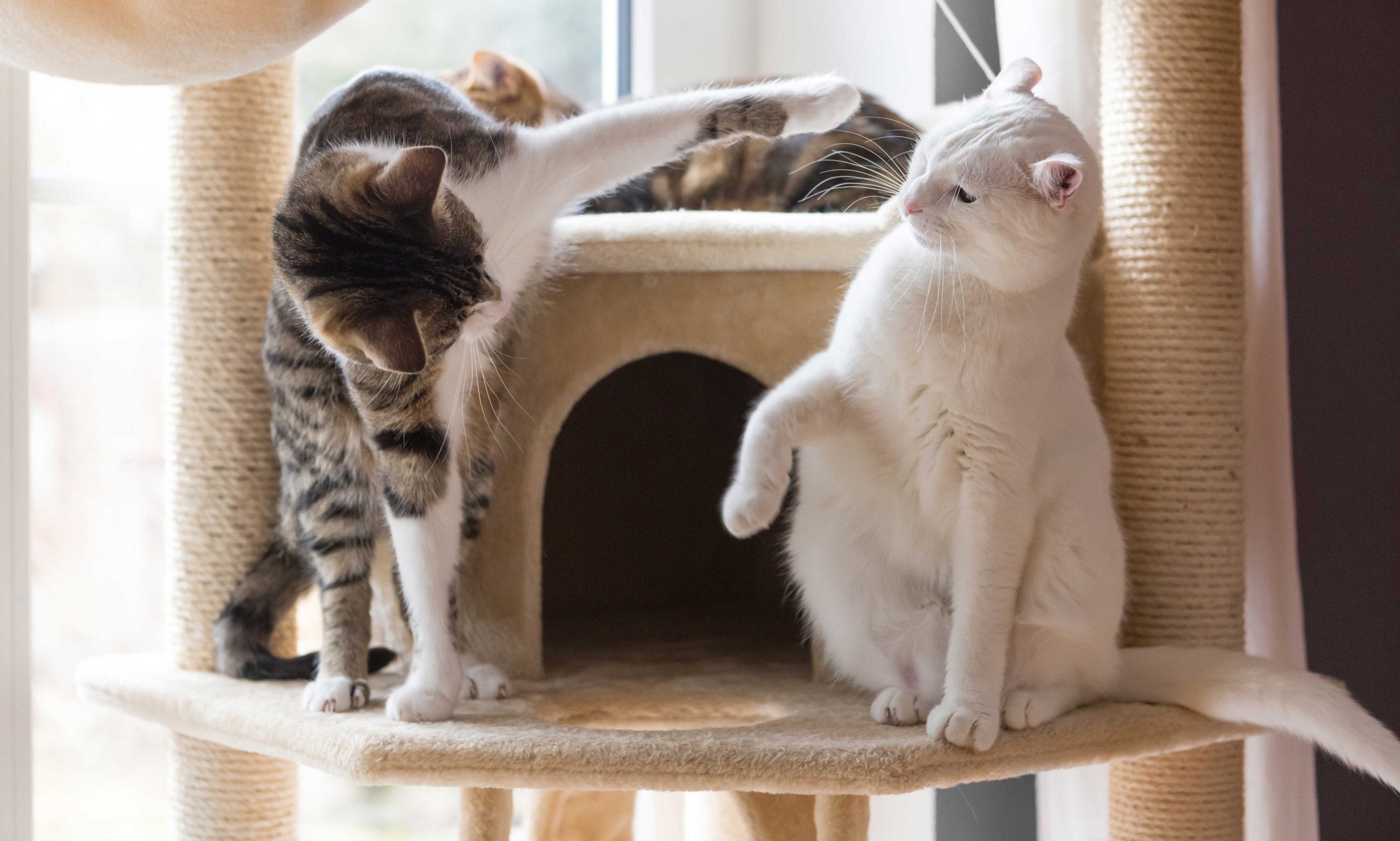
“If your cat is suddenly very combative, that is a huge red flag,” says Reimers, who cites such aggression, along with appetite changes and eliminating outside the litter box, as “your cat’s way of telling you something is not right.”
After the vet gives your cat a clean bill of health, then it’s time to determine what changes you’ve recently made in your household that could be causing the stress, she adds.
What You Can Do To Help:
Give your cat a lot of love and attention if you’re experiencing changes in your home because this offers reassurance, Reimers says.
If you’re adding a new pet or a new family member is joining your home, she recommends using calming diffusers, like Feliway® plugs, in your home, and adding stress relief supplements, like Rescue Remedy®, to your cat’s water bowl to help them relax.
Cats may become aggressive if they feel their environment is being threatened, Blass says. Remember that the threat may or may not be real or it may have passed if it was real at one point. What matters is that your cat feels there’s a threat. The solution is to “de-stress entirely and help your cat find a new normal.”
5Increased Vocalization
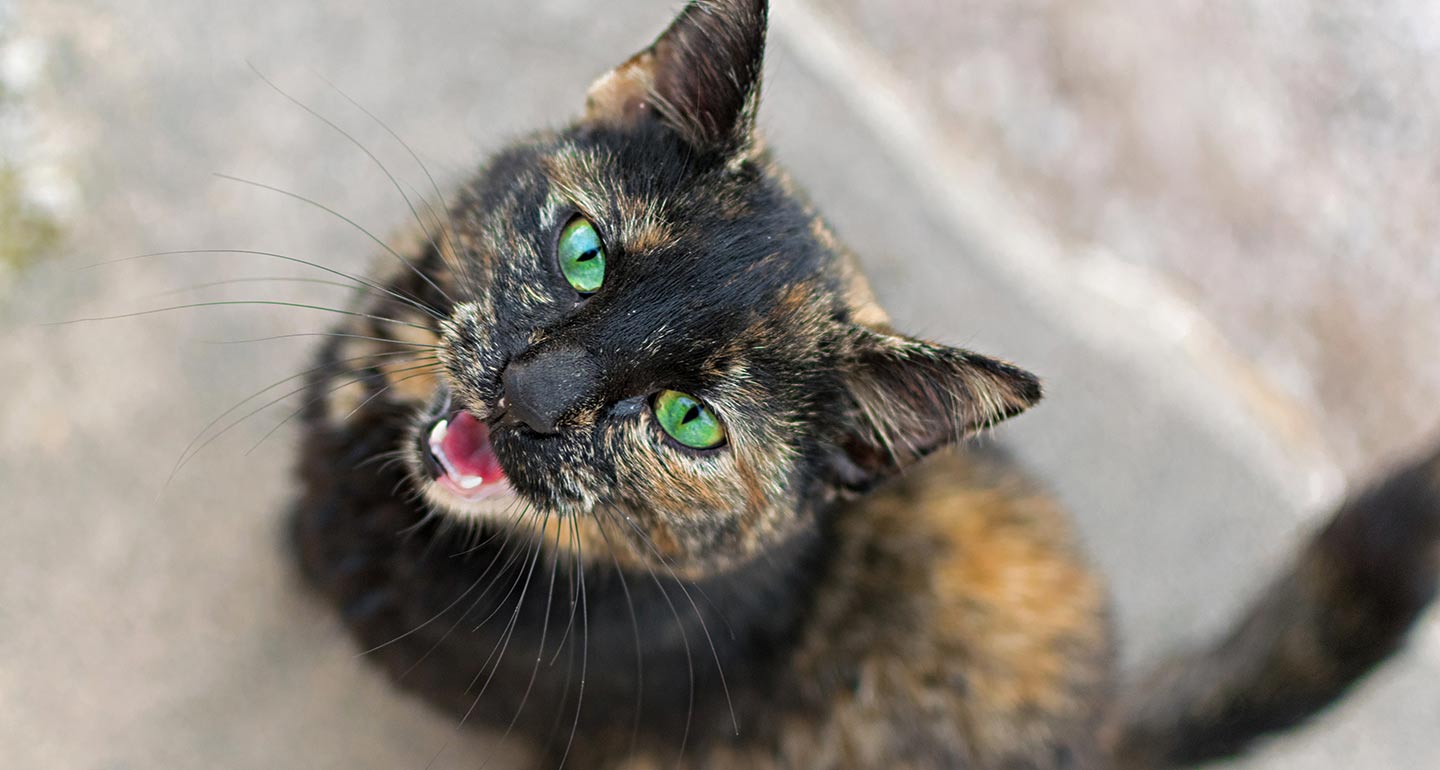
Oh, that feline yowling! “When cats begin to age and experience discomfort, they often begin to vocalize more,” Blass says, adding that cognitive changes can affect a cat’s mood and sense of well-being.
What You Can Do To Help:
Once your vet has ruled out any medical issues, take note of when your cat yowls or makes any other vocalizations.
Early morning or nighttime vocalization can be related to cognitive changes, Blass notes. Try using natural calming remedies, such as PetHonesty® Dual Texture Calming Chews Supplement or Vetoquinol® Zylkene® Supplement, and providing your cat a safe room free of loud noises to sleep in, with easy-to-navigate furniture or cat posts to help your aging kitty.
“Having play sessions and making sure your senior cat’s food needs are met will also keep him on track,” Blass says.
What Causes Stress in Cats?
"Domestic cats are delicate creatures who are both predator and prey on the food chain," says Reimers. "This makes them prone to stress on a grander scale than their canine counterparts."
The causes of stress that lead to stressed cats range from small to life-changing. Potential stressors include:
- Shifting furniture
- A family member’s illness
- A move to a new home
- Traveling
- A death in the family
- A new baby
- A new cat or other pet
- Their own health issues, especially when pain or older age are factors
Reimers and Blass both strongly recommend that in coping with any kind of feline behavior change, your initial response should not be a DIY diagnosis, but rather a visit to the vet to have their physical health assessed. It’s important to start there because the source of stress could be a health issue.
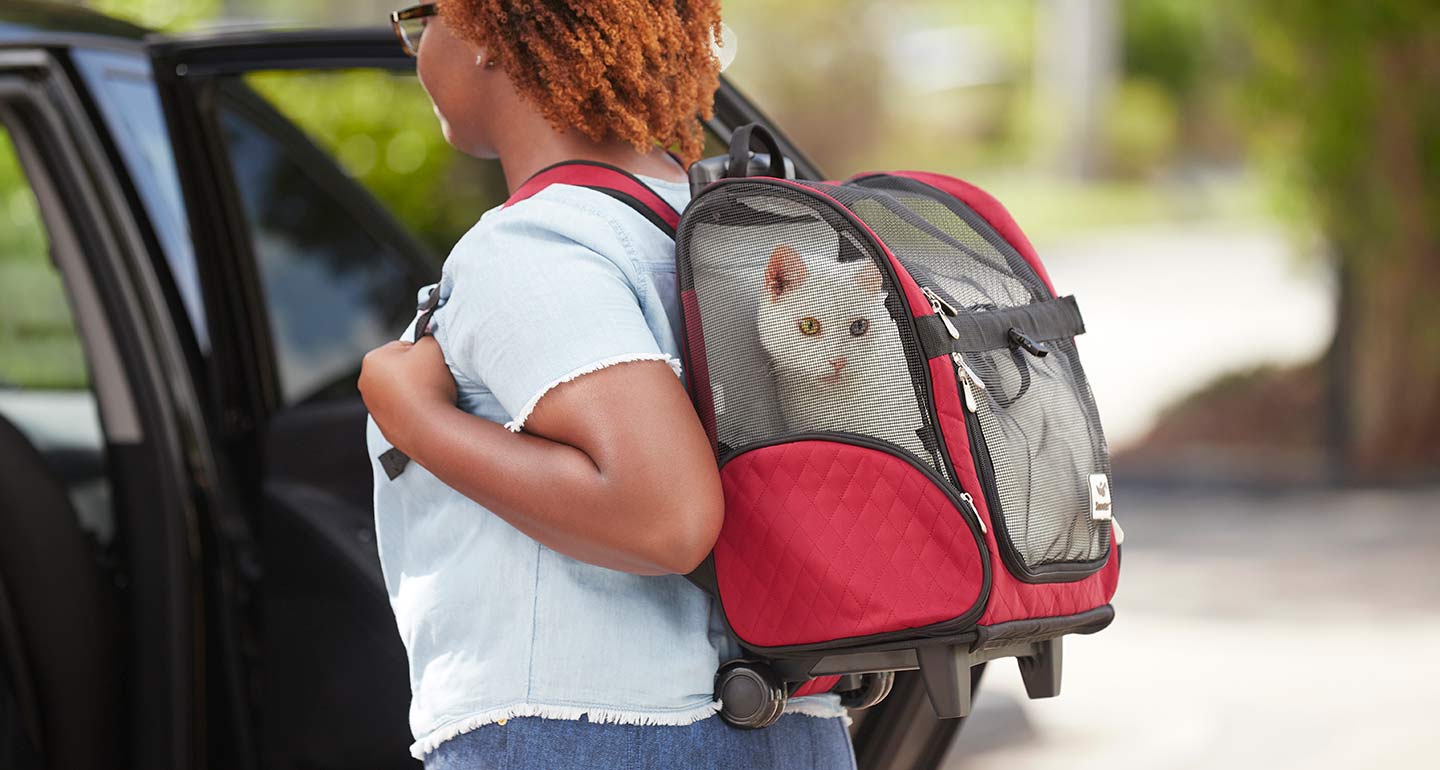
How To Help Prevent Your Cat From Getting Stressed
While banishing all stress from your cat’s universe may not be possible, a pet parent may be able to avoid situations that can cause your cat anxiety and stress.
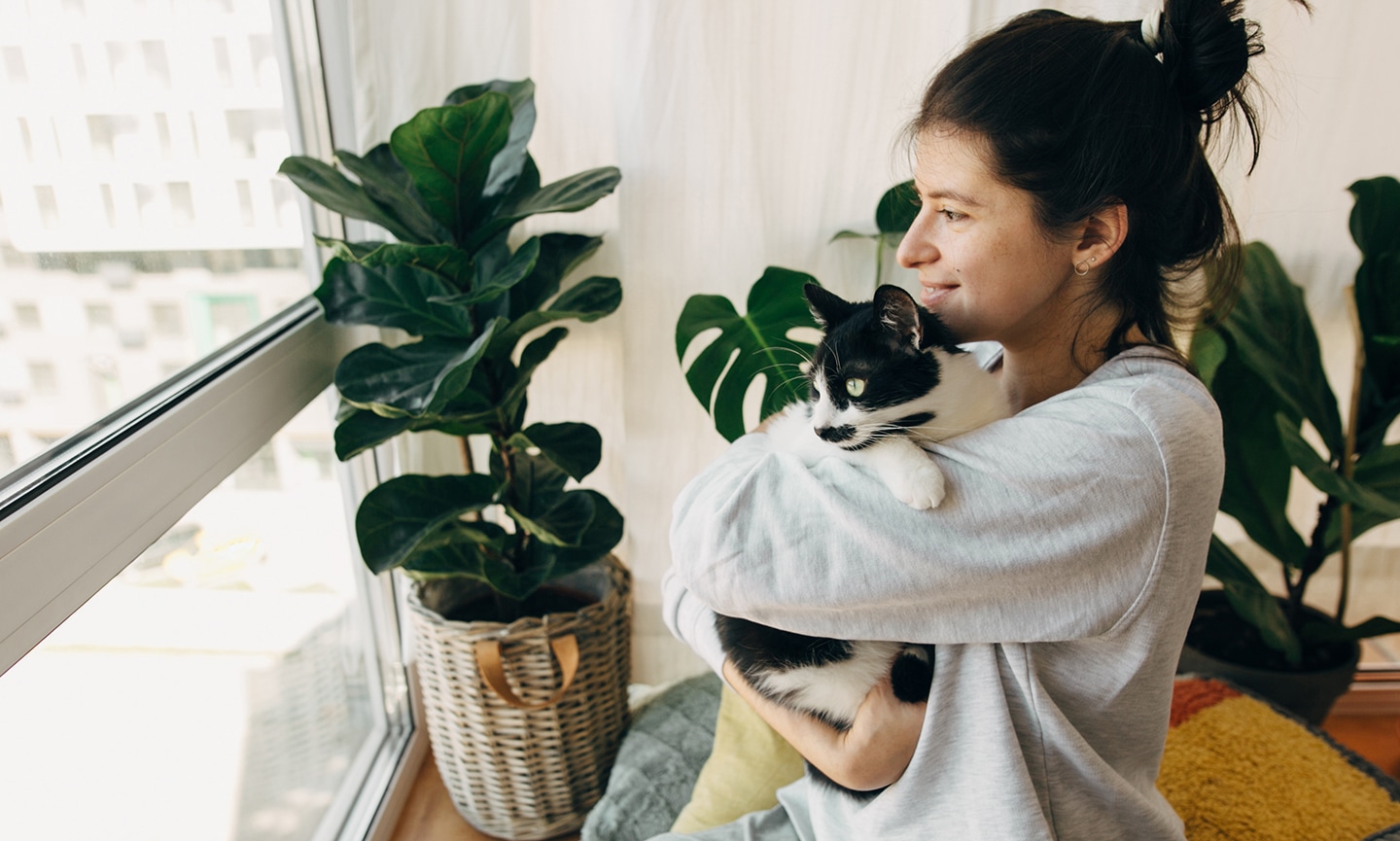
Here are a few ways to help prevent your cat from getting stressed:
Really Get To Know Your Cat
Pay attention to their body language. Learn what makes them happy. Schedule a daily time to offer attention, enrichment activities, and playtime.
Doing these things as part of a daily routine can alleviate boredom, increase their security, and keep your cat’s stress levels lower.
Don’t Neglect Regular Checkups With Your Vet
Keeping tabs on your cat’s physical health is important. Regular vet checkups are a must to uncover new illnesses and navigate the aging process.
Make Gradual Changes, Not Rapid Ones
Keep stress at bay by making changes gradually.
“When your cat needs to accept a new pet or baby, do not just throw the two together and hope for the best.” Blass says. “Acclimate slowly so your cat can get used to the idea.”
For example, if you’re planning a move, prepare for it slowly.
“[B]ox things up gradually over a few weeks, and let your cat explore the boxes; make it fun,” Blass says. Remember that once you’ve arrived in your new home, you shouldn’t let your feline BFF have access to the entire house. Instead, give your cat a safe room so they have time to decompress and adjust.
Knowing how to determine whether you have a stressed cat and what to do about it if you do will help increase your feline friend’s happiness and quality of life. It might also help to learn how to bond with your cat. After all, the closer you are, the more you’ll understand your cat.
Expert input provided by Rita Reimers, CEO and co-founder of Cat Behavior Alliance in Charlotte, North Carolina; and Yody Blass, M.A., a certified animal behaviorist by the National Association of Animal Behaviorists and owner and director of Companion Animal Behavior in Leesburg, Virginia. Additional reporting by Laura Willard.
This content was medically reviewed by a veterinarian.
More about stress in cats (and how to help!):
Share:
